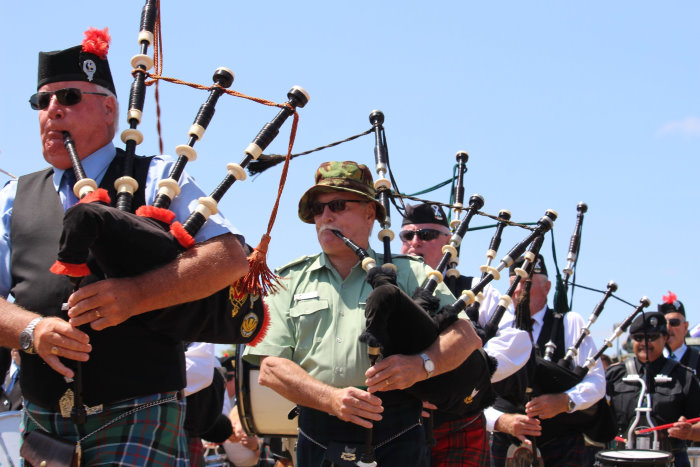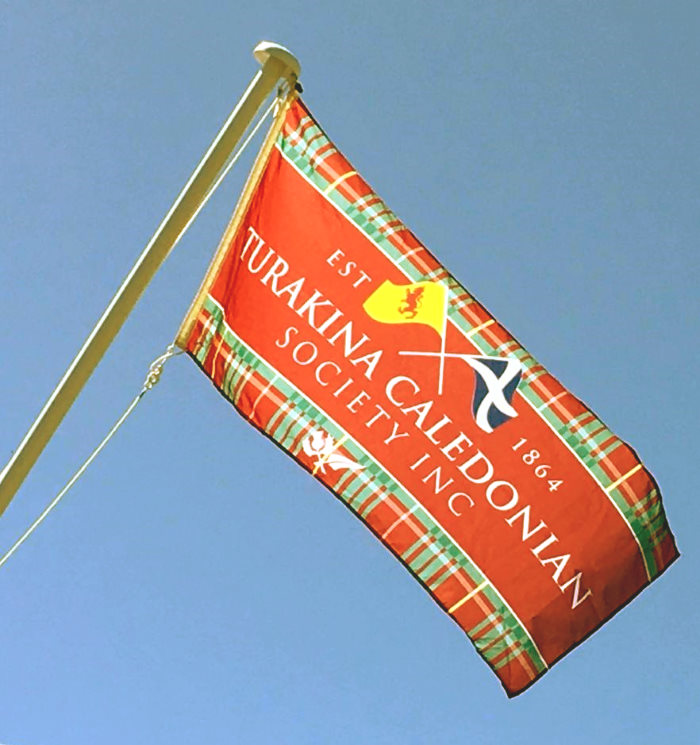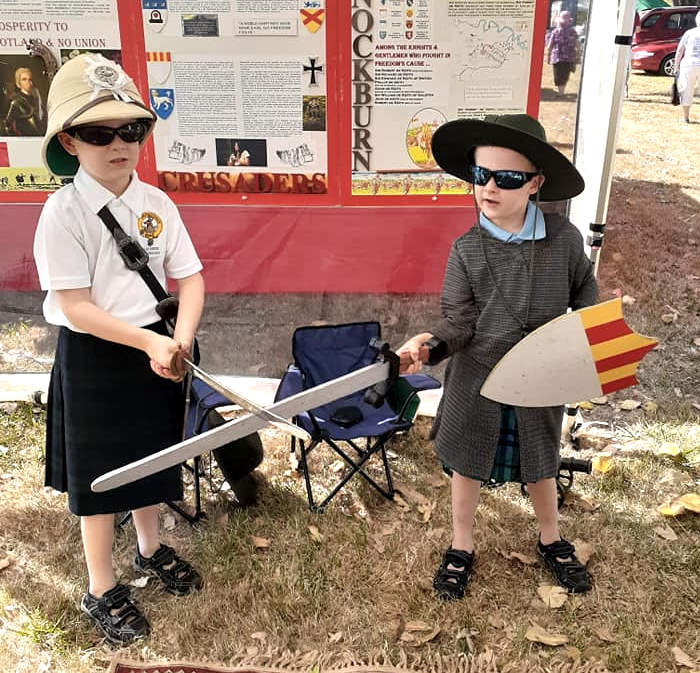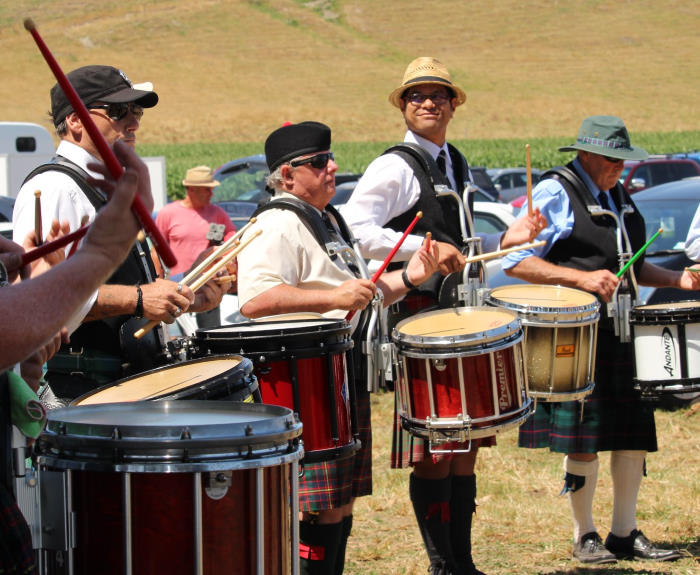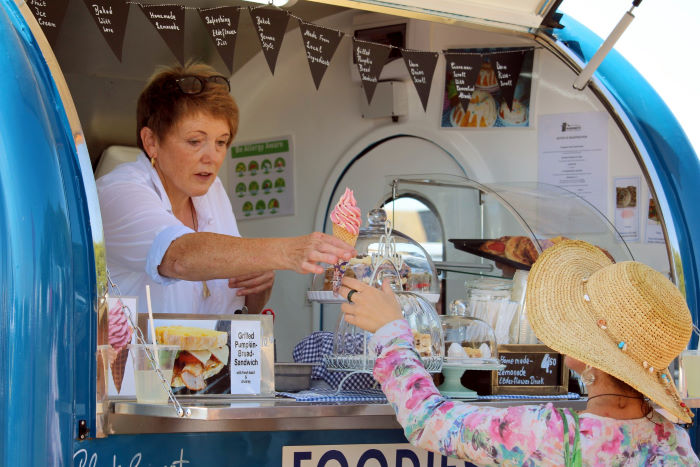Activities planned for the 160th Turakina Highland Games
Our competition schedule can be found here - 2025 Turakina Highland Games Schedule, where you can find the different competitions, rules, entry fees, adjudicators, closing dates and prizes*. Please note that your entry is subject to agreement with these rules. Entry forms are here.
On Friday night:
• 6:30pm - A lament will be played at the Turakina Cemetery overlooking the Turakina village. You are welcome to join us for the walk up the hill to pay respects to the original settlers and founders of the Turakina District and Turakina Highland Games
• 7:30pm - The official welcome to the 160th Turakina Highland Games on the Turakina Domain, along with a lament reading and lite refreshments. This year there will also be a bbq with proceeds going to the Turakina School and a recital by a prominent piper.
On Saturday:
• Solo piping, solo drumming, pipe bands and a veteran’s recital
• P&D dancing (conducted under the Piping and Dancing Association of NZ rules)
• RSOBHD dancing (conducted under the Royal Scottish Official Board Highland Dancing dancing rules)
• The McLean Scholarship, awarded annually to the most promising Piper, Drummer, P&D Dancer, RSOBHD Dancer and Youth Pipe Band
• Clan displays – Find out more about your heritage, share stories and memories, catch up with your relations, and discover new links and friends
• Traditional Scottish field events for adults and kids, including sheaf toss, shot put, caber toss, tug o’war, farmer’s walk, three-legged walk and needle-in-the-haystack
• Variety stalls such as Scots in Spirit, Kintail House, Easton Pipes and Dance, with ice cream, food, coffee stands and all the regular favourites
• Cash bar
• Massed bands
• Clan march
• Due to popular demand, there is an over-50s solo drumming event, judged by two up-and-coming young drummers
• Haggis ceremony followed by prize-giving
• Evening barbeque starts at about 6.30, with traditional food
• Twilight Choreography competition, where dancers get creative and add their own twist to Highland dancing
• Ceilidh starts at about 7.30 – a traditional social event with folk music, singing, dancing and storytelling, featuring the live band BOWMORE.
Costs
• Free parking all day
• Gate fee: $10 adults, children under 15 free
• Evening barbeque: Adults $15, children 12 years and under $7
• Camp sites: $5 per night + gate fee
• Entrance to the Ceilidh is free
Note: There are two camping areas: a quiet one on the grounds of Turakina School, and a lively one on the field itself.
Event booking
You can register for all events here. If you have any questions please contact turakinahighlandgames@gmail.com.
Your hosts: The Turakina Caledonian Society Inc.
Established in 1864, the Mission of the Turakina Caledonian Society is:
• To further the art in all aspects of Solo Bagpipe playing, Highland and National Dancing, and Pipe Band Contests through an annual National Caledonian Sports gathering to be held in Turakina.
• To promote and encourage Celtic culture and development of strength, speed and skill in traditional Highland events for all age groups.
• At the foresaid annual Caledonian Sports:
To actively encourage and promote other aspects of Scottish culture within the community.
The Society’s Secretary is Kat Begg, who can be contacted at turakinahighlandgames@gmail.com .
About Turakina
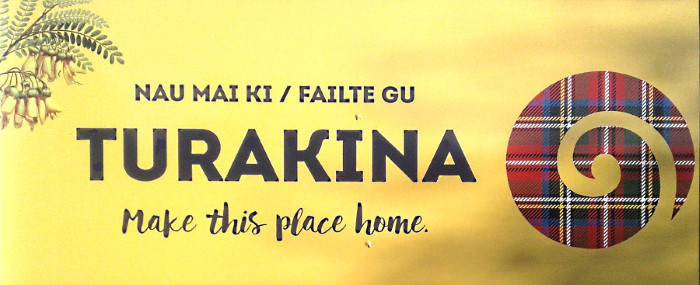
Turakina is a small village in the western Rangitikei district in the southern North Island of New Zealand. It’s the only place in the world where the town sign welcomes you in Māori, Celtic and English.
The Māori explorer Hau named Turakina, along with the other rivers on this coast. On his journey south searching for his wife he used a felled log to cross the river (“turaki” = to fell).
There were originally three marae in the area, a stronghold of the Ngāti Apa people. Today, Tiniwaitara Marae, which has meanings including “a multitude of spears” and “the gathering of people”, is situated along Turakina Beach Road. The renovated meeting house, dining hall (built in the 1980’s) and Māori Anglican church are used regularly for many Ngāti Apa events and also hosts many visiting groups.
The first European settlers arrived from Scotland by ship from the 1840s and walked up the beach from Wellington, following a land purchase from the Ngāti Apa people in May 1849, negotiated by Sir Donald McLean. At its peak in the late 1880s Turakina and the surrounding area boasted three churches: St Andrew’s Presbyterian (the current church was built in 1865); St George’s Anglican (opened on 15th April 1883); and St Joseph’s Catholic Church (opened on 20th Sept, 1868). St Joseph’s was shifted to be the chapel of St Mathew’s School Masterton in the 1980s.
The first Christian church service in the Rangitikei was conducted in Turakina on December 15th 1852 by Presbyterian Minister Rev. James Duncan. Apart from the state primary school, which was established in 1852, there have been several other schools including the recently-closed Turakina Māori Girls’ College, sited in Marton.
Early business and industries included a saddler, baker, black smith, milliner, tailor, grocer and butcher, lawyer, brick kiln, dairy factory, racecourse, flourmill, thriving flax industry, orchard and sale yards. There was an illicit whisky distillery and four hotels: the Ben Nevis (re-built after 2 fires and still going today), the Railway (re-built once after fire), the Family, and the Shamrock (burnt down in 1876).
The first New Zealand health camp was established in 1919 on the Lethbridge farm. The courthouse and jail is still standing, shifted down the beach road in the 1940s to make room for tennis courts. There were also two railway stations, making for a prosperous and busy township during coach and wagon days. However, the arrival of the railway led to a slow decline in the fortunes of the village.
The 1980s saw an upturn as new people settled, building new houses and renovating and restoring old ones. Today Turakina has many heritage buildings dating from the 1850s and is surrounded by fertile agricultural land. There is also an adjacent beach settlement named Koitiata (meaning “the rising of the morning sun”), which is often referred to as Turakina Beach.
* Please note: This information may be updated in the lead up to the event.
